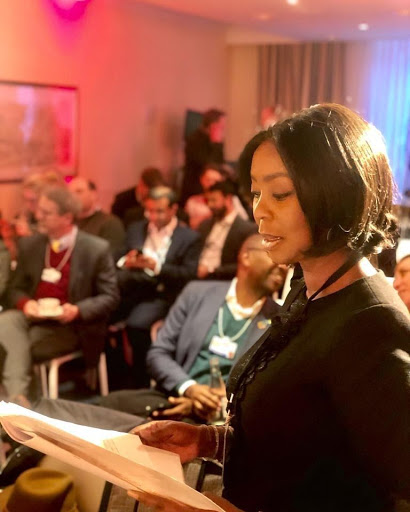Categories
Toyin Saraki, Founder-President of the Wellbeing Foundation Africa, made a series of high-level interventions at the annual World Economic Forum in Davos, Switzerland, this week. Mrs Saraki urged the 65 world leaders and 3,000 participants to abandon ‘business as usual’ in recognition of the $33 billion gap in funding for reproductive, maternal, newborn, child and adolescent health, and called for enhanced collaboration between sectors to bring sustainable results to the grassroots level, as participants at Davos met to discuss the theme ‘Globalization 4.0: Shaping a Global Architecture in the Age of the Fourth Industrial Revolution.’
At a World Economic Forum Session focused on sustainable models for development hosted by Merck for Mothers, Devex and the Global Financing Facility, with speakers from Philips Healthcare and Credit Suisse among others, Mrs Saraki commented:
“Where there are gaps in provision, unmet by the public sector, we need to consider new strategies for foreign direct investment and domestic resource mobilisation.”
“At the Wellbeing Foundation Africa we are proud to have had hugely successful partnerships with the private sector, achieving sustainable and scalable impact at the grassroots level.”
“For those who wish to achieve that impact it is crucial to find the right implementing partners – who not only understand the communities you wish to work with and for, but indeed partners who come from those communities.”
“My message to Davos is that we cannot accept a ‘business as usual approach’ and I welcome the intervention by Bill Gates this week. The Bill and Melinda Gates Foundation has shown how
much can be achieved by smart investment – indeed, as pointed out by Bill, investing in global health organizations aimed at increasing access to vaccines creates a 20-to-1 return.”
Commending Dr. Mwele Malecela, Director of Neglected Tropical Diseases at the WHO, for her leadership on NTDs and the associated key issues, such as improved water, sanitation and hygiene (WASH) standards, Mrs Saraki also conducted an exploratory meeting with Ellen Agler, CEO of The END Fund. Nigeria has the largest NTD burden in Africa, with more than 128 million people requiring treatment for at least one NTD in 2016 and all five of the most common NTDs being present in the country: intestinal worms, river blindness, trachoma, lymphatic filariasis, and schistosomiasis.


Categories